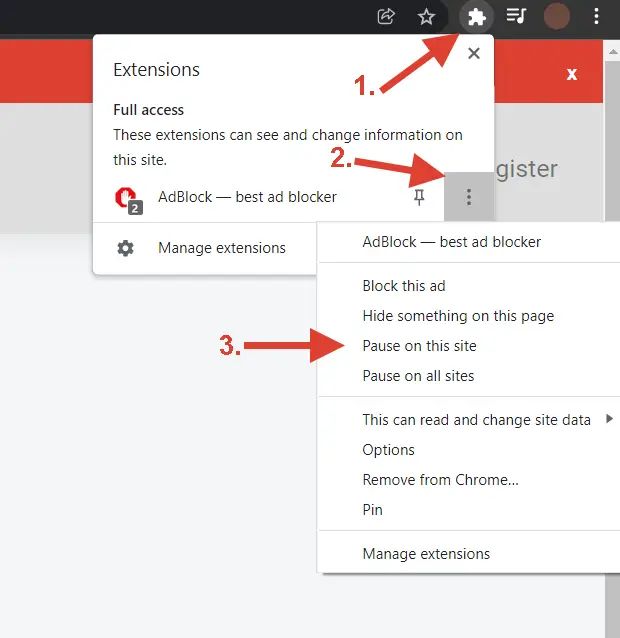In the competitive landscape of digital commerce, businesses require a platform that is not just robust and scalable, but also flexible enough to deliver unique, engaging customer experiences. This is where Adobe Commerce, the enterprise-grade evolution of the legendary Magento platform, truly shines. But harnessing its full potential requires specialized expertise. This guide delves into the world of adobe commerce development, exploring everything from its core architecture to the process of becoming a certified expert.
Whether you’re a business owner evaluating e-commerce solutions or an aspiring developer, this comprehensive overview will provide the insights you need to navigate the powerful ecosystem of Adobe Commerce.
Table of Contents
- what is adobe commerce and Why Is It a Leader?
- The Two Flavors of Development: Frontend and Backend
- The Rise of Headless Architecture
- Harnessing the Power of the Cloud
- Finding the Right Adobe Commerce Development Partner
- The Journey to Becoming an Adobe Commerce Developer
- Adobe Experience Manager vs Magento: Understanding the Difference
- Frequently Asked Questions
What Is Adobe Commerce and Why Is It a Leader?
At its core, Adobe Commerce is a feature-rich, highly extensible e-commerce platform designed for B2B, B2C, and D2C businesses aiming for significant growth. It builds upon the open-source foundation of Magento, enhancing it with enterprise-level features, cloud hosting capabilities, and deep integration with the Adobe Experience Cloud.
So, what is adobe commerce exactly? It’s a complete solution that offers unparalleled flexibility. Businesses can create highly customized shopping experiences, manage complex product catalogs, and integrate with virtually any third-party system. This power stems from its modular architecture, allowing developers to build and deploy new functionalities without altering the core codebase. This approach is central to custom adobe commerce development, enabling businesses to create a platform that is uniquely their own. The platform’s capabilities make it the top choice for companies seeking powerful adobe commerce ecommerce development.
The Two Flavors of Development: Frontend and Backend
Like any sophisticated web platform, Adobe Commerce development is broadly divided into two key areas: frontend and backend.
Frontend Development
The frontend is everything the customer sees and interacts with—the theme, layout, buttons, and user journey. A skilled frontend developer focuses on creating a visually appealing, intuitive, and responsive user experience (UX). They work with technologies like HTML, CSS, JavaScript, and modern frameworks to bring the brand’s vision to life. For those looking to excel, mastering adobe commerce frontend is a continuous journey of learning. Developers often seek out guides and tutorials, with many searching for a "mastering adobe commerce frontend read online" resource or a "mastering adobe commerce frontend pdf download" to build their skills.
Backend Development
The backend is the engine that powers the store. An adobe commerce developer specializing in the backend works with the server-side logic, databases, integrations, and core platform functionalities. This includes creating custom modules, connecting to payment gateways and shipping providers, managing APIs, and ensuring the platform’s performance and security. These specialists provide critical adobe commerce development solutions that keep the business running smoothly.
The Rise of Headless Architecture
A significant trend in e-commerce is the move towards headless commerce. But what is headless commerce? It’s an architecture where the frontend presentation layer (the "head") is decoupled from the backend e-commerce functionality. This allows for unparalleled creative freedom on the frontend.
So, is adobe commerce headless? Yes, it can be. Through its robust set of APIs and tools like PWA Studio, Adobe Commerce fully supports a headless approach. This strategy, known as adobe headless commerce or headless adobe commerce, enables businesses to use modern frontend frameworks (like React or Vue.js) to create lightning-fast, app-like experiences, or to feed product information to various endpoints like mobile apps, IoT devices, and in-store kiosks, all from a single backend.
Harnessing the Power of the Cloud
For businesses that prioritize performance, scalability, and security, Adobe Commerce Cloud is the premier offering. So, what is adobe commerce cloud? It is a managed, automated hosting platform for Adobe Commerce, built on Amazon Web Services (AWS). It provides a Platform-as-a-Service (PaaS) environment optimized for the application.
This cloud solution simplifies infrastructure management, allowing development teams to focus on building features rather than maintaining servers. The environment is designed for continuous integration and delivery, making adobe commerce cloud development an efficient and streamlined process. Businesses looking to leverage this power often seek out specialized adobe commerce cloud development services to manage their entire cloud infrastructure and deployment pipeline. It’s an ideal ecosystem for any adobe commerce cloud developer, as it provides a standardized and powerful environment. For those coming from a self-hosted background, understanding the nuances of magento commerce cloud for developers is a key step in transitioning to this modern hosting paradigm.
Finding the Right Adobe Commerce Development Partner
The success of an Adobe Commerce project hinges on the expertise of the team behind it. Businesses have several options: hire an in-house team, work with freelance developers, or partner with a specialized agency.
An adobe commerce agency brings a wealth of experience, a team of certified professionals, and established processes to the table. When vetting a potential partner, it’s crucial to look for a firm that operates as an adobe commerce development company with a proven track record. The best agencies, often referred to as a magento commerce agency or adobe commerce magento agency, have a deep bench of talent, including project managers, QA testers, and both frontend and backend developers.
Working with an established adobe commerce development agency ensures access to a team of adobe commerce developers who understand the platform’s complexities. These adobe commerce expert developers can provide strategic guidance, mitigate risks, and deliver a high-quality product. For complex projects, an adobe e-commerce development company is almost always the most reliable path to success. The goal is to find a partner that offers comprehensive adobe commerce development services, from initial strategy to ongoing support and maintenance.
The Journey to Becoming an Adobe Commerce Developer
A career as an adobe magento developer is both challenging and rewarding. It requires a strong foundation in PHP, MySQL, JavaScript, and an understanding of object-oriented programming principles and MVC architecture.
Aspiring developers have access to a wealth of adobe commerce developer resources. The official Adobe Experience League provides documentation, tutorials, and community forums. These adobe commerce developer tools and resources are essential for learning the platform’s intricacies. The community constantly shares insights through these adobe commerce developer tools resources, fostering a collaborative learning environment.
Certifications: The Mark of an Expert
For those serious about their careers, Adobe offers a comprehensive certification path to validate their skills. Achieving a certification demonstrates a high level of proficiency and is a key differentiator in the job market. So, what is adobe certified expert status? It is a formal recognition from Adobe that a developer has proven their expertise through rigorous, scenario-based exams.
The path often begins with the Professional-level certifications. An adobe certified professional magento commerce developer has demonstrated broad knowledge of the platform’s core functionalities. Similarly, the adobe certified professional adobe commerce developer credential validates skills in the latest version of the platform. Key exams include:
- AD0-E711: The exam for the AD0-E711 adobe commerce developer professional certification.
- AD0-E702: The exam for the AD0-E702 adobe commerce developer professional certification.
From there, developers can advance to the Expert level. An adobe certified expert magento commerce developer or adobe certified expert adobe commerce developer possesses deep knowledge of the platform and can architect complex solutions. Key Expert exams include:
- AD0-E709: The exam for the adobe commerce developer expert certification.
The pinnacle of the development track is the adobe certified master magento commerce architect, a credential reserved for elite professionals who can design and lead the most complex Adobe Commerce implementations. Knowing how to become an adobe certified expert involves dedicated study, hands-on experience, and a deep understanding of the platform’s best practices. This adobe commerce expert developer certification is a powerful testament to a developer’s skill. A developer with these credentials, whether an adobe commerce developer professional or an adobe commerce expert, is a valuable asset to any team.
Adobe Experience Manager vs Magento: Understanding the Difference
A common point of confusion is the distinction between two of Adobe’s flagship products. The adobe experience manager vs magento (now Adobe Commerce) comparison is important.
- Adobe Experience Manager (AEM) is a comprehensive content management solution (CMS) focused on creating and managing rich, personalized digital experiences across all channels. Its strength lies in content, asset management, and personalization.
- Adobe Commerce (Magento) is a pure-play e-commerce platform built for managing products, carts, and transactions. Its strength is commerce.
While they can be used independently, their true power is unlocked when integrated. AEM can manage the rich content and experiences, while Adobe Commerce powers the transactional engine, creating a seamless content-and-commerce journey for the customer.
Frequently Asked Questions
What is Adobe Commerce?
Adobe Commerce is an enterprise-level e-commerce platform based on Magento. It offers advanced features for B2B and B2C businesses, including cloud hosting, business intelligence tools, and extensive customization capabilities, making it a complete solution for adobe commerce website development.
Is Adobe Commerce headless?
Yes, Adobe Commerce can be implemented in a headless architecture. It provides robust APIs and tools like PWA Studio that allow the frontend (the "head") to be decoupled from the backend, enabling developers to build custom, high-performance user experiences with modern frameworks.
What is the difference between Adobe Commerce and Magento Open Source?
Magento Open Source is the free, community-supported version of the platform. Adobe Commerce is the premium, enterprise version that includes all Open Source features plus advanced functionalities like B2B modules, Adobe Sensei-powered recommendations, business intelligence dashboards, and access to the managed Adobe Commerce Cloud hosting environment.
Why should I hire an adobe commerce development agency?
Hiring an adobe commerce magento agency provides access to a dedicated team of certified experts, including project managers, developers, and QA analysts. They bring proven methodologies, broad experience from multiple projects, and strategic oversight that can accelerate development, reduce risk, and ensure a higher-quality final product compared to relying on a single freelance adobe commerce website developer.
How long does adobe commerce website development take?
The timeline varies significantly based on complexity. A basic implementation with a pre-built theme might take 3-4 months. A highly custom project with complex integrations, a unique design, and custom features can take 6-12 months or longer. An experienced adobe commerce development company can provide a more accurate estimate after a thorough discovery process.
What skills does an adobe magento commerce developer need?
A proficient adobe commerce developer needs strong skills in PHP, MySQL, and object-oriented programming. They must also have a deep understanding of the Adobe Commerce architecture, including its module system, layout XML, and APIs. Frontend developers also need expertise in JavaScript, CSS, and tools like PWA Studio, while backend developers need experience with integrations and data management. Many go on to become an adobe commerce certified developers to formally validate these skills.


